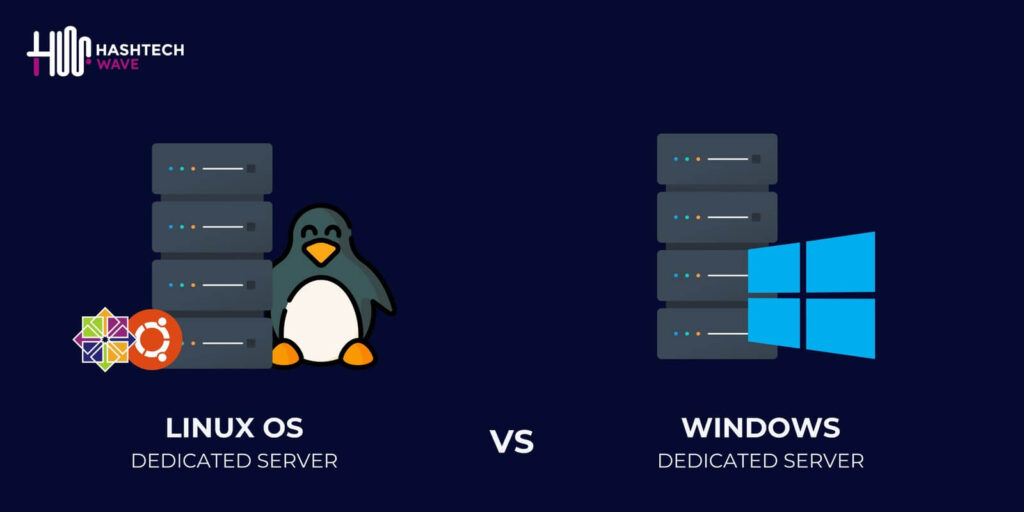Web hosting solutions are essential for any technical-based application or business industry as the world is consistently transforming into a technological era. Virtual Private Server (VPS) hosting services are the most suitable choice for people and organizations due to the massive increase in the complexity of websites and apps. Traditional Shared hostings might not deliver the necessary resources and control to meet desired requirements. So, in this blog post, we will step inside VPS hosting to learn about its components and purpose in 2025.
Many firms switched to VPS hosting in 2025. Their websites and apps needed more power. A Virtual Private Server can host websites, e-commerce shops, software projects, and other things. It is flexible and customizable. This makes it useful for startups, small businesses, and big companies alike.
Without further ado, the following sections will dive deeper into the concept of VPS hosting. This includes the advantages, distinct operating systems such as VPS Linux, the correlation between VPS and cloud hosting, as well as the ongoing revolution brought by powerhouses such as Amazon Web Services and their cloud-based VPS services. Let’s get started and take another step into the world of VPS hosting.
With VPS hosting, your website rises like a phoenix in the digital sky, fueled by reliability and speed
Syed Safwan Abbas

Make Your Website Better with Virtual Private Server Hosting: Key Benefits
VPS hosting refers to a web hosting service that relies on virtualization technology to allow each user to have their own server with dedicated IP Address and resources like storage, CPU usage and sometimes GPU. While shared hosting combines many websites and their information resources on a single server, VPS hosting provides more control, better security, and enhanced scalability. Because of this configuration, the performance and reliability are higher than those with shared hosting. Here’s why private hosting might be the ideal choice for your website:
1. Enhanced Performance and Scalability
Shared hosting overcrowds multiple websites onto a single server; if any site on shared hosting experiences a surge in traffic, it can slow down everyone else. With VPS hosting, you get dedicated resources like CPU, RAM, and storage. Your website loads faster, and users have a smoother experience. Scaling your resources up or down is easy, so your website grows simultaneously.
2. Unwavering Security and Isolation
Shared hosting can be risky. If one site gets hacked, others may be in danger too. Hackers can break in, ruin work, or put bad software on sites. A VPS host keeps your virtual server separate and safe. This isolation protects your website and online work from security issues caused by others. It also lets you have more control to secure your server better.
3. Greater Control and Customization
In contrast with shared hosting, there are restrictions on the customization of the server. However, VPS hosting gives you root access to your virtual server. So, you can set up custom software configurations, customize security solutions, and adjust your server to perform at its best. Think of it as maintaining your mini data centre without cost.
4. Reliability and Cost-Effective Solution for Growing Websites
Shared hosting is cheap. However, there are issues; one website can use all resources, but this hurts other user sites. Dedicated virtual hosting solves that problem. Your site won’t be affected by traffic spikes elsewhere. It has dedicated resources just for you. So, your website uptime improves. And it has a better online presence. As your business grows, shared hosting can’t handle high traffic. Dedicated servers are powerful but very costly. Instead, you can upgrade to VPS hosting. It gives you dedicated resources like servers. But it costs way less. And you can increase resources as needed.
Diving Deeper: Different Types of VPS Hosting
While VPS hosting is undoubtedly superior to shared hosting in every way, did you know there are different types of VPS itself? Knowing these types can assist you in choosing the best VPS plan for your requirements. The two primary types are as follows:
1. Management Levels: Tailored Service Options
VPS hosting providers offer different levels of management for your virtual server. This determines how much responsibility you have for server up-time and tasks. Here’s a breakdown of the three main options

• Unmanaged VPS
In Unmanaged Servers, you have complete control and root access to your server, allowing you to manage users, install software and configure settings like a firewall or resource management. However, you are also responsible for all the maintenance tasks, security updates and troubleshooting. This requires good technical expertise in system administration, Linux command line (if you are using a Linux OS) and familiarity with server software like Apache or Nginx (web servers) even though database management like MariaDB or MySQL by yourself.
• Managed VPS
A managed VPS plan is best suited for those who desire increased website or app accessibility but do not care much about complexities or difficulties associated with server administration: using managed VPS will make one depend on the skills of the hosting provider so that his servers can be kept running smoothly and securely however not all these providers’ services include supporting installation and configuration of software.
| Features | Unmanaged Dedicated Server | Managed Dedicated Server |
| Control Panel | Not included (requires manual setup) | Included (pre-configured) |
| Server Management | Provided by the hosting company | Provided by hosting company |
| Technical Expertise | Required | Not required |
| Security Updates | Handled by the hosting company | Provided by the hosting company |
| Software Installation | You are responsible for the installation | Handled by the hosting company |
| Cost | Less Expensive | More expensive |
| Ideal For | Tech-savvy users, developers | Beginners, busy users |
2. Operating Systems: Choosing Your VPS’s Foundation
The operating system (OS) acts as your server’s core software. The two most common choices are:

• Linux OS – Virtual Private Servers
It is popular open-source OS which is known for it’s stability and security. Also, it has a large collection of available software. When talking about cost and customization then, it is a recommended option for users with strong technical knowledge. Best os for server hostings are Ubuntu, CentOS and Debian as they offer diverse package management systems and software repositories, so thorough research is recommended to determine the optimal choice for your needs.
• Windows – Virtual Private Servers
A Windows VPS is critical for those users who need Windows-specific applications, such as ASP.NET or Microsoft SQL Server. The Windows VPS provides a familiar environment for Microsoft-oriented end-users. First, Windows has a user familiarity concept because its user interface is pretty much the same as others. Windows servers indeed cost more than Linux servers. Windows VPS is a Windows-specific framework for hosting. Windows VPS is typically more expensive than Linux VPS, but it includes a variety of proprietary tools and technologies that enhance performance and productivity.
Common Uses for Powerful VPS Hosting
What exactly can you do with a VPS? Buckle up because we’re diving into the common uses of VPS hosting that might be the perfect fit for your online needs!
1. Web Hosting: Take Your Websites to New Heights
Is your website going through growing pains? Shared hosting can’t keep up with the increased traffic and complexity. This is where VPS hosting comes in. It takes a dedicated slice of resources from a physical server on which your website runs. Picture it like getting your apartment in a busy building – access to the shared infrastructure and amenities but with dedicated CPU, RAM, and storage resources. This means your website will load faster, users will have a smoother experience, and you’ll have no problems handling traffic surges.
Are you looking for a cheap VPS to boost your website’s performance? One of best providers is Hostinger, which allows you to access server-grade power at cheap prices.
2. App Hosting: Craft and Test Innovative Applications
Developers, you can now cheer! Virtual Private Server hosting is the ideal environment to create and test your game-changing applications. A VPS hosting account enables you to innovate the subsequent social media phenomenon or the most sophisticated e-commerce site since it gives you the adaptability and command you want. Edit software, install tools on time, and even gain root access. You can examine new software variations since your private and dedicated server is an insulated sandbox, meaning other websites or users are unaffected. Therefore, feel free to experiment with advanced applications since your virtual server is the only one with password protection.
3. Remote Desktop
Working from home is very common these days. VPS hosting can help you access work files from anywhere. You can set up a virtual desktop on your server. This lets you easily use work programs and data from any device. It does not matter where you are. You can work with team members who live in other places. VPS hosting is also secure and safe. Your information stays private. This gives you less worry about your work files.
Choosing the Perfect VPS: A Technical Deep Dive
Navigating the technical specifications and jargon-filled world of VPS providers can be discouraging. Worry not! My tech-savvy friend! Let’s delve into the crucial factors to consider when selecting the ideal virtual server for your specific needs:
Here are some extra add-ons that can be helpful and should be considered before buying hosting from any provider:
Conclusion
Picking a great dedicated server might feel hard, but you can make the right choice by knowing what you need and then matching that with the VPS features. It’s an important call for your website or app. So, get a provider with the right tools, control and tech skills. That way, your online project can shine. If you’re confused, ask the provider’s helpers. They’ll guide you through. In the end, what matters is choosing wisely for success.
A good dedicated server can open new chances and make your site stronger. But if you need more help to choose, then tell us below. Our experts will guide you nicely. I hope this post helped you learn. More helpful posts will come soon!
What is the difference between shared hosting and VPS?
Many websites use shared hosting. It means that they share one server. VPS gives each site its own resources in a virtual space.
Do I need technical knowledge to manage a VPS?
Some technical knowledge helps with dedicated server setup. But many hosting companies offer server management in their plans. They provide tech support. This makes server management easier for people with different skill levels.
How does VPS compare to dedicated servers in terms of performance and cost?
VPS offers comparable performance to dedicated servers at a fraction of the cost, making it an attractive option for businesses seeking reliable hosting solutions without the hefty price tag.







